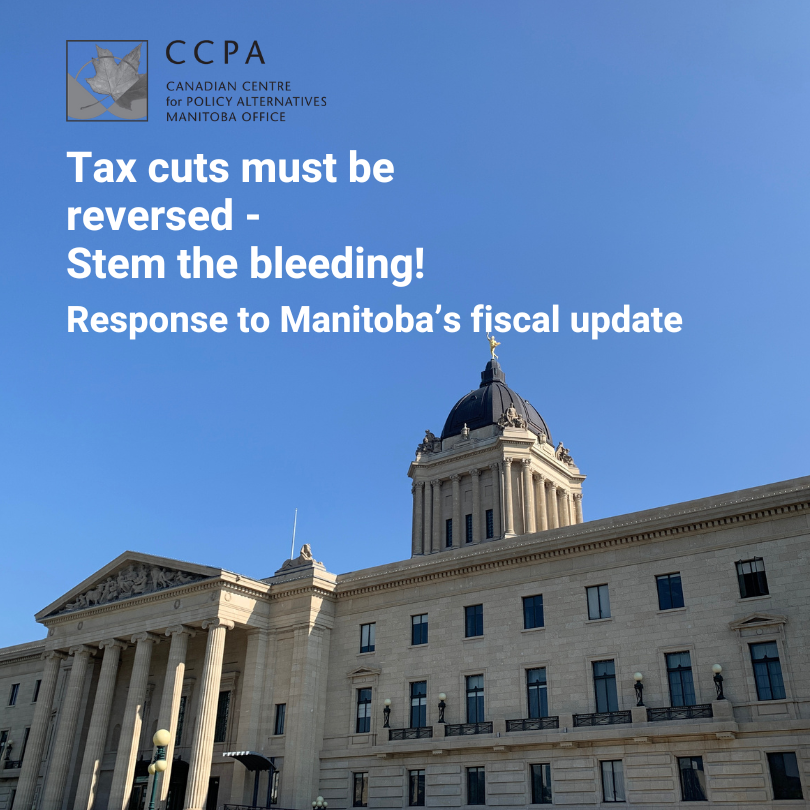
December 17, 2024
For Immediate Release (Winnipeg, Treaty One):
Manitoba’s Second Quarter Fiscal Update makes clear that the provincial government must reopen the conversation on provincial revenue and progressive taxation.
The ongoing large deficit means the Manitoba government cannot sustain the tax cuts introduced under the Pallister/Stefanson government. It must reverse or amend these measures, including the increase to the Basic Personal Amount and tax bracket increases, to provide sufficient revenue not only to fix healthcare but also to address the housing crisis, provide quality public services and fight the climate crisis.
Yesterday, the Manitoba government released its second quarter fiscal update, which announced that the 2024/2025 deficit is projected to be $1.309 billion. While the deficit is projected to decrease from $1.9 billion the previous year, the large deficit is leaving the provincial government with few resources to invest in pressing areas such as social housing development, poverty reduction and food insecurity in Manitoba.
After seven years of austerity and severe cuts to the civil service, the Manitoba government needs to rebuild its capacity to deliver public services we all rely upon efficiently and effectively.
“The deficit in Manitoba has mushroomed after the radical $1.6 billion tax cuts between 2017 – 2023. The size of the deficit in the past two fiscal updates shows that this loss of revenue is unsustainable – these tax cuts must be reversed. Manitobans who can afford to pay a bit more in taxes to shore up public services and infrastructure they rely upon should do so,” says Molly McCracken, Manitoba director of the Canadian Centre for Policy Alternatives.
When the Manitoba NDP took power, the deficit for 2023/24 was projected to be $363 million. However, by the end of the last fiscal year, the deficit ballooned five times to $1.9 billion.
The Manitoba NDP government began to reverse some of the tax cuts in the 2023/2024 budget by introducing a $1,500 education property tax credit and changes to the basic personal amount personal income tax credit for those earning above $200,000 per year. The Manitoba government should consider ambitious tax changes to bring in the revenue needed to provide quality public services, maintain tax fairness, reduce income inequality, and support vulnerable Manitobans.
Those hurting the most from the affordability crisis have not benefited from the Manitoba tax cuts and are struggling the most with the affordability crisis, as demonstrated in the massive increase in food bank use and food insecurity in Manitoba.
Options for revenue for Manitoba include reversing the regressive changes to the personal income taxes that greatly benefitted upper-income earners, raising the corporate income tax rate to the inter-provincial average, reinstating the gas tax, and implementing a wealth and mansions tax.
About
The Canadian Centre for Policy Alternatives is Canada’s leading progressive research institute.
Media contact: Molly@policyalternatives.ca 204-803-0047
– 30 –


